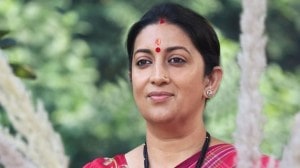Accepting neurodiversity and promoting inclusion
By encouraging quiet spaces, alternative learning methods or modified work environments and using language that is easy for everyone to follow, we are walking in the right path towards inclusion
 Inclusion is about embracing diversity. (Source: Freepik)
Inclusion is about embracing diversity. (Source: Freepik)Neurodiversity refers to the concept that neurological differences are natural variations of the human brain. It emphasises the idea that conditions such as autism, ADHD, dyslexia, and other developmental or cognitive differences, are not deficits or disorders but rather unique ways of experiencing and interacting with the world. Understanding and embracing neurodiversity fosters greater empathy, reduces stigma and creates a more inclusive society where everyone has the opportunity to thrive. Sensitising people towards neurodiversity involves fostering understanding, empathy and acceptance of individuals with diverse neurological profiles.
Education and Awareness
Sharing facts about neurodivergent conditions such as autism, ADHD, dyslexia and others help to educate those who are less aware. Dispelling myths and stereotypes is essential to be able to see someone in a different light. It is also essential to emphasise on the unique talents and perspectives neurodivergent individuals bring, this would also help a neurotypical individual learn a lot more.
Empathy Building
Narrating success stories and sharing experiences of neurodivergent individuals can help to humanise their journeys. This would also help neurodiverse individuals in feeling more welcomed. Organise awareness days or workshops highlighting neurodivergent achievements.
Inclusive Practices
As a community, if we foster environments where neurodivergent individuals feel accepted and valued, this would help to create an atmosphere that promotes inclusion. By encouraging accommodations, such as quiet spaces, alternative learning methods, or modified work environments and using language that is easy for everyone to follow, we are walking in the right path towards inclusion.
Language Matters
How we address an individual is very essential. It is important to not address a person according to their diagnosis and addressing them respectfully by their preferred name. Respect individual preferences (e.g. person with autism vs. autistic person). Replace terms like “suffering from” with “living with” or “has.”
 Here are some essential tools for parents or caregivers with children on the autism spectrum. (Source: Freepik)
Here are some essential tools for parents or caregivers with children on the autism spectrum. (Source: Freepik)
Encourage Allyship
Teaching people how to support their neurodivergent peers effectively. Listen to neurodivergent individuals’ stories without making assumptions about their needs or experiences. Advocate for accommodations in schools, workplaces, or public spaces (e.g., sensory-friendly environments, flexible schedules).
Don’t just be aware — participate in advocacy efforts and volunteer to support organisations that help in achieving this goal, whether in education, employment or personal development.
The concept of diversity encompasses a multitude of dimensions and at its core lies the intricate interplay of various identities and experiences. “Embracing Diversity: The Intersectional Experience” explores the nuanced intersections of race, gender, sexuality, class, ability and other facets of identity. This concept note outlines the importance, challenges and opportunities in embracing diversity through an intersectional lens, recognising the multifaceted nature of individuals and communities.
Inclusion is about embracing diversity. It is a practice of creating an environment where all individuals feel valued, respected and supported, regardless of their differences across ability, socio-economic status, caste, and gender. Embracing diversity aims to create an inclusive and equitable environment by acknowledging and valuing the unique contributions and diverse experiences following the intersectional approach. It is important to continually assess and adapt these practices to ensure they meet the evolving needs of the society.
Keeping the above as an objective in mind, the Department of Special Education, SNDT Women’s University is organising their third International Conference on Education (ICE3) in collaboration with Jai Vakeel Foundation on the theme, “Embracing Diversity: The Intersectional Experience”, from January 9-11, 2025, at the Garware Club House, Mumbai. There are 17 international distinguished speakers from different parts of the world presenting in this conference.
Prof. Richard Rose Emeritus Professor Northampton University, UK, is the keynote speaker. The chairperson of the National regulatory body Rehabilitation Council of India, Dr Sharanjit Kaur will be the chief guest in the inaugural ceremony. There are more than 35 national presenters conducting workshops, panel discussions, fireside chats, and didactic sessions.







- 01
- 02
- 03
- 04
- 05
























